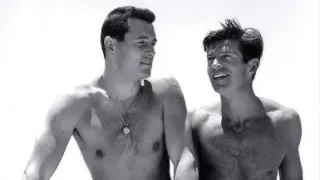October 21, 2024
'Smile 2' Grinning to No. 1 at Box Office While 'Anora' Glitters in Limited Release
Lindsey Bahr READ TIME: 3 MIN.
Horror movies topped the domestic box office charts and an Oscar contender got off to a sparkling start this weekend. "Smile 2," in its first weekend, and "Terrifier 3," in its second, proved to be the big draws for general movie audiences in North America, while the Palme d'Or winner "Anora" got the best per-theater average in over a year.
"Smile 2" was the big newcomer, taking first place with a better than expected $23 million, according to studio estimates Sunday. Parker Finn returned to write and direct the sequel to the supernatural horror "Smile," his debut. Originally intended for streaming, Paramount pivoted and sent the movie to theaters in the fall of 2022. "Smile" became a sleeper hit at the box office, earning some $217 million against a $17 million budget.
The sequel, starring Naomi Scott as a pop star, was rewarded with a bit of a bigger budget, and a theatrical commitment from the start. Playing on 3,619 screens, it opened slightly higher than the first's $22 million.
Second place went to Universal and DreamWorks Animation's "The Wild Robot" in its fourth weekend with $10.1 million, bumping it past $100 million in North America. Family films often have long lives in theaters, particularly ones as well reviewed as "The Wild Robot," and some have speculated that it got a bump this weekend from teenagers buying tickets for the PG-rated family film and then sneaking into "Terrifier 3," which is not rated, instead. Either way, Damien Leone's demon clown movie, which cost only $2 million to produce, is doing more than fine with legitimate ticket buyers. It added an estimated $9.3 million, bringing its total to $36.2 million.
"Rumors like that are PR gold," said Paul Dergarabedian, the senior media analyst for Comscore. "There's no better indication that that movie is red hot right now."
The No. 1 openings for "Smile 2" this weekend and "Terrifier 3" last were only possible because of the failure of "Joker: Folie à Deux." That big budget sequel continued its death march in its third weekend, falling another 69% to earn $2.2 million, bringing its domestic total to $56.4 million.
Warner Bros. has a better performer in "Beetlejuice Beetlejuice," which placed fourth in its seventh weekend with an additional $5 million, bringing its domestic total to $284 million. Star Michael Keaton also had another film open this weekend – the father-daughter dramedy "Goodrich" which stumbled in with only $600,000 from 1,055 locations.
Rounding out the top five was the romantic tearjerker "We Live In Time," which expanded to 985 theaters following last weekend's debut on 5 screens. The A24 release starring Andrew Garfield and Florence Pugh earned $4.2 million over the weekend. Audiences were 85% under 35 and 70% female, according to exit polls. The well-reviewed film will expand further next weekend.
One of the other brightest spots of the weekend was Sean Baker's "Anora," which opened in six locations in New York and Los Angeles and earned an estimated $630,000. That's a $105,000 per theater average, the best since "Asteroid City's" $142,000 average last summer. The Neon release, a sensation at Cannes and a likely Oscar contender, stars Mikey Madison as a New York sex worker who falls for the son of a Russian oligarch.
After several weeks of would-be awards contenders and buzzy films ("Piece by Piece," "Saturday Night," "The Apprentice" among them) fizzling with audiences, "Anora's" success is a promising sign that moviegoers will still seek out arty, adult fare.
"For moviegoers, there's a lot on offer with something in every type of movie in every category," Dergarabedian said. "I think we're going to have a really strong home stretch with a great combination of movies big and small."
The Walt Disney Co. also made a splash with several re-releases. "The Nightmare Before Christmas" got a place in the top 10 with $1.1 million, while "Hocus Pocus" made $841,000.
Next weekend will have a major studio comic book movie with "Venom: The Last Dance" as well as an awards movie in the papal thriller "Conclave" vying for audience attention.
Estimated ticket sales for Friday through Sunday at U.S. and Canadian theaters, according to Comscore. Final domestic figures will be released Monday.
1. "Smile 2," $23 million.
2. "The Wild Robot," $10.1 million.
3. "Terrifier 3," $9.3 million.
4. "Beetlejuice Beetlejuice," $5 million.
5. "We Live In Time," $4.2 million.
6. "Joker: Folie à Deux," $2.2 million.
7. "Piece by Piece," $2.1 million.
8. "Transformers One," $2 million.
9. "Saturday Night," $1.8 million.
10. "The Nightmare Before Christmas," $1.1 million.






